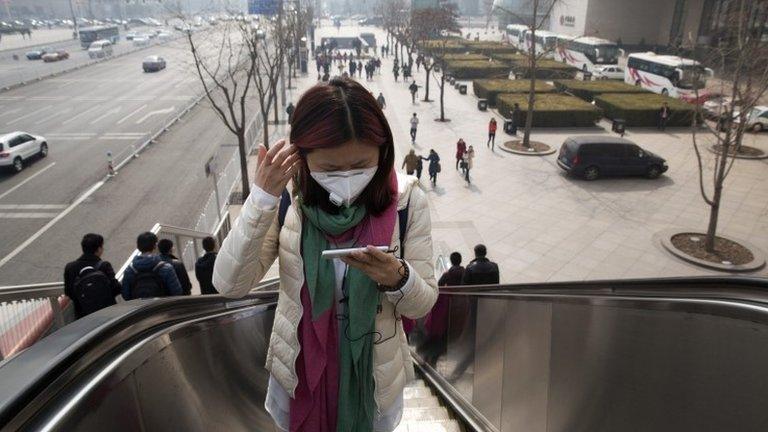China gripped by censored essay on Beijing
- Published
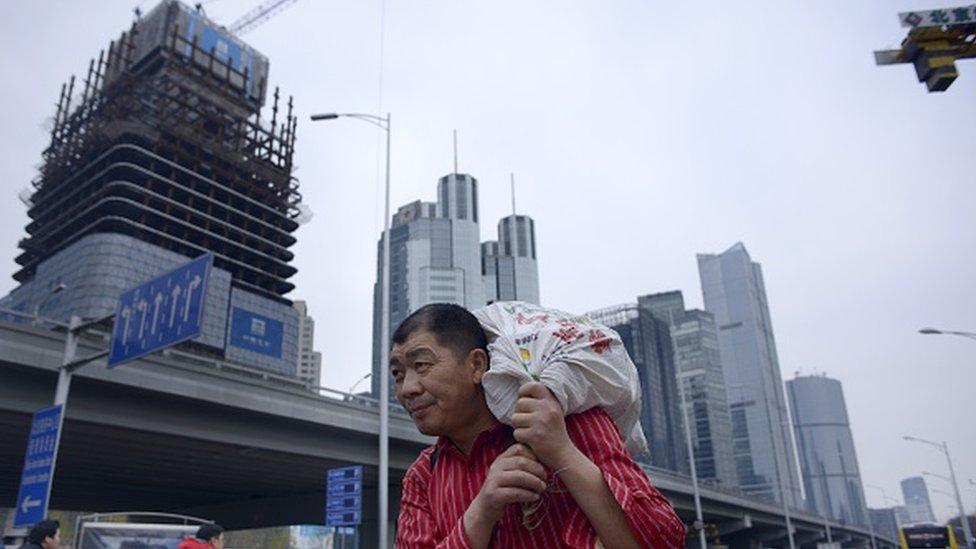
Zhang Guochen's essay has sparked debate on how much Beijing residents are enjoying life
A candid opinion piece describing the growing difficulties of living in Beijing appears to have become the target of Chinese government censorship.
The essay, entitled "Beijing has 20 million people pretending to have a life", says industrialisation, migration and rising costs mean that many people in the city merely survive from day to day, rather than enjoying life.
It spread widely on social media in China after being published last week. Author Zhang Guochen has since issued an apology, though many people are saying he was coerced into this.
Meanwhile, media reports have emerged stressing the positives of life in the Chinese capital, external and playing down the original piece.
'Beijing is a tumour'
Zhang Guochen (pen name Zhang Wumao) posted his article on 23 July on mobile messenger WeChat.
Mr Zhang, originally from northern Shaanxi province, has previously written about the story of migration in China and the experience of displacement.
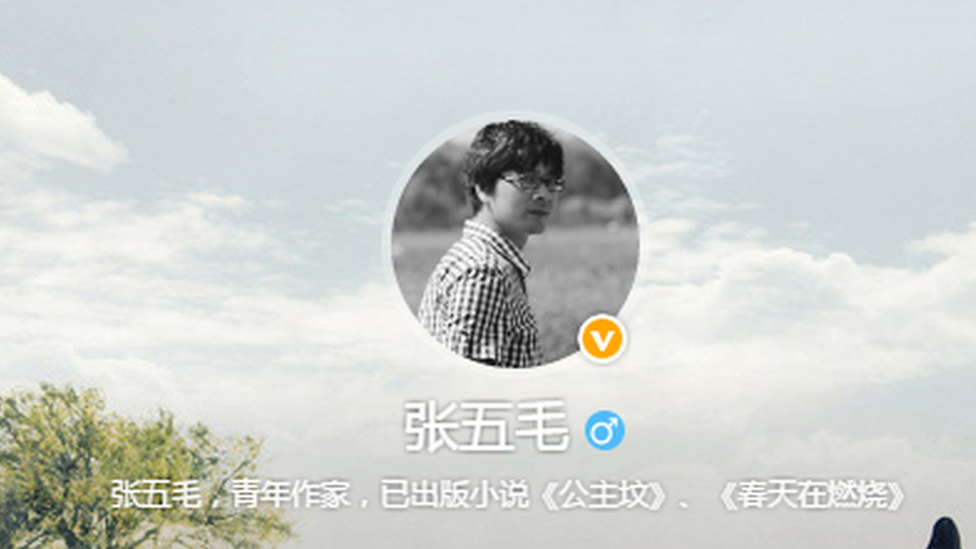
Zhang Guochen's article was viewed seven million times before it was removed from WeChat
His latest article pulls no punches. It says that "Beijing is a tumour; nobody can control how fast it is growing" and describes how the city has "no human warmth", "belongs to outsiders" and has become a place where many are "pretending to have a life".
According to Sohu News more than seven million people read the article before it was deleted from his WeChat account.
Users trying to access the article received a message saying it "cannot be displayed because it violates content regulations".
Posts that are critical of China and its governance are often targeted by government censors. In March 2015, a Chinese documentary film that highlighted China's pollution problem, "Under the Dome", was removed from online platforms after it was viewed 100 million times.
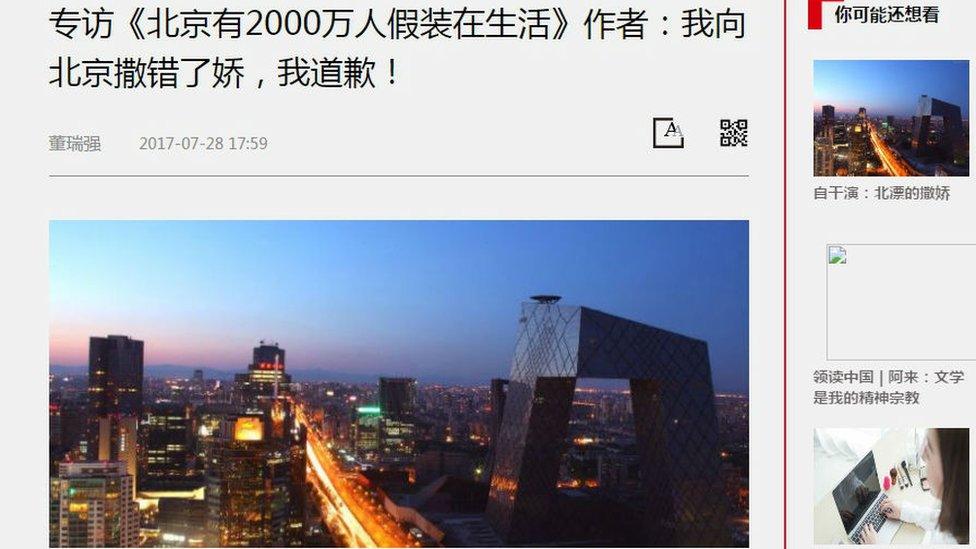
State media prominently shared an article in The Economic Observer saying Mr Zhang had apologised
Many online users have since reposted Mr Zhang's article on online forums.
But state media have given little attention to the original article. Instead, outlets like the Beijing Youth Daily have focused on a 27 July article in which Mr Zhang appears to apologise for his piece.
Mr Zhang told The Economic Observer that his article "has many holes in it" and that it was intended to be just "a piece of mischief, a humorous expression".
"I made a mistake; most of the media have criticised me, thank you for giving me the opportunity to explain, and to apologise," he said.

Social media posts asking why Mr Zhang needed to apologise received thousands of likes
Many on social media suspect that Mr Zhang had been pressured into saying sorry.
"It looks as though the author's got scared," says "Ningcai4620". Another user says they suspect he came under pressure "because his content was sensitive and related to national policy".
"Everyone has the right to freedom of expression," adds "Huasheng Wenzhujiao". "Why did he need to apologise?"
"Is this the new Chinese literary inquisition?" one user adds, a sentiment which is echoed by many others.
Some social media users are responding with sarcasm. "How dare you tell us to wake up from 'the China dream'?" one says, referencing a slogan associated with Chinese President Xi Jinping.
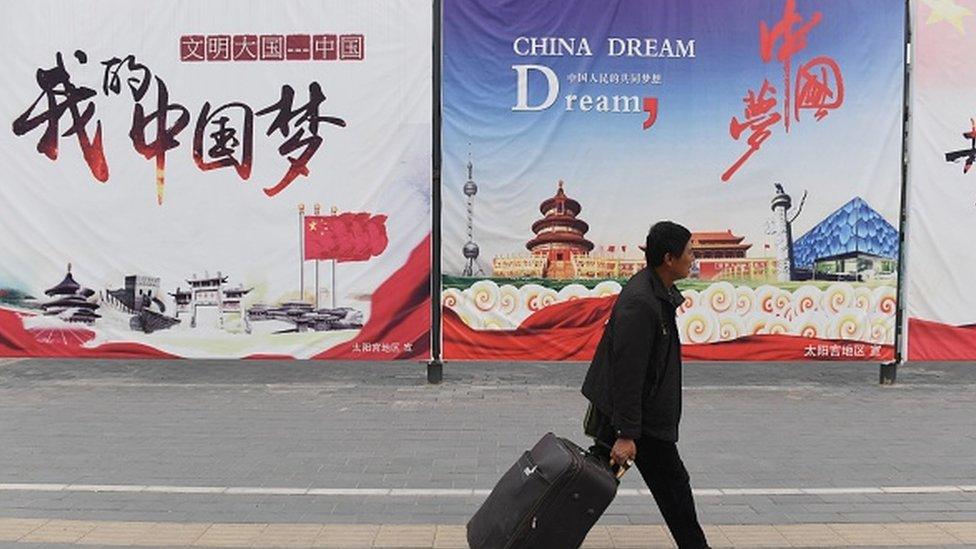
Many netizens joke that Mr Zhang's article has "awakened" people from "the China Dream"
BBC Monitoring, external reports and analyses news from TV, radio, web and print media around the world. You can follow BBC Monitoring on Twitter, external and Facebook, external.
- Published7 March 2015
